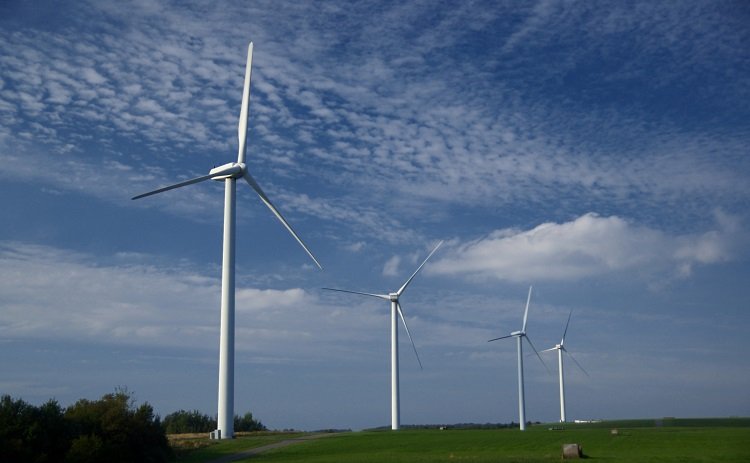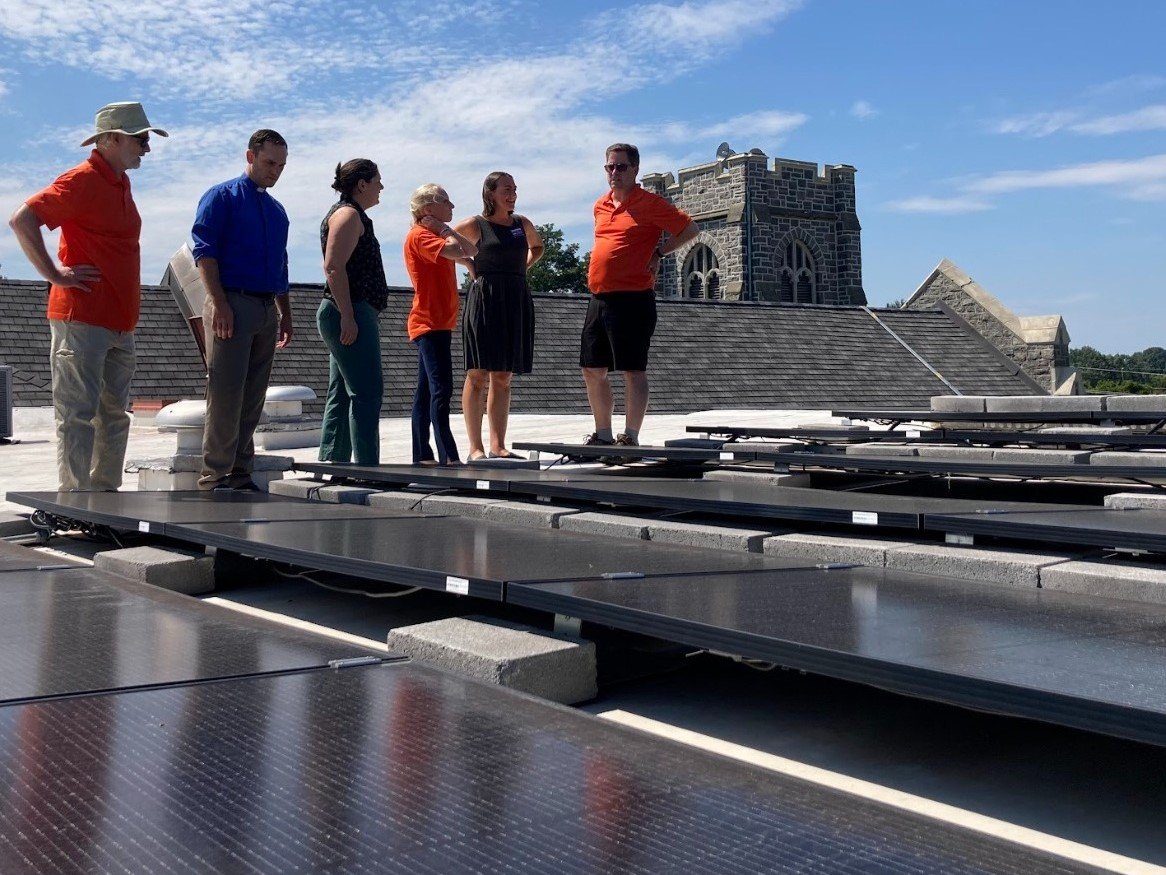Last year, Pennsylvania ranked 50th in the nation for solar, wind and geothermal energy generation growth. Now, the state’s renewables are on the rise — but just barely.
PennEnvironment’s parent organization, Environment America, released the eighth edition of its “Renewables on the Rise” report on Thursday, Oct. 24. The 2024 report shows marginal improvement for Pennsylvania — it ranked 48 against the other 49 states and the District of Columbia. Kerns called the performance abysmal.
“Despite Pennsylvania’s legacy of leading on energy development, we are falling behind the national pace of renewable energy growth, and missing out on the huge economic and environmental opportunities that the renewable energy economy offers,” Ellie Kerns said during a webinar hosted for the report’s reveal yesterday. Kerns is PennEnvironment’s climate and clean energy advocate.
Renewables on the Rise measures states across six categories: wind energy, solar energy, electric vehicle registrations, electric vehicle charging ports, energy savings and battery storage capacity. Beyond that, it ranks every state based on the most current year of data, but also ranks them based on their growth in each category over the past decade.
In an interview after the webinar, Kerns said that — as one of the largest states — Pennsylvania often ranks well in terms of generation, but its lack of growth consistently drags the state’s ranking down.
“For solar, we were ranked 26 in total generation, but if you look at the chart and you start comparing our line of adoption to lots of other states, we’re basically a flat line,” Kerns said.
Improvements in recent years put Pennsylvania at 29 for solar generation growth since 2014. The state’s wind generation is a sadder sight: Although it clocked in at 21 for energy generation in 2023, it was ranked 50 for growth. Graphs in the report show that Pennsylvania is producing less wind energy than it did in 2014.
“A big portion of our renewable energy has actually come from wind for a really long time, but we installed all of those systems mostly in the 2010s and a lot of them are coming to the end of their lifespan, so we’ve actually seen a decrease in the amount of energy that we get from wind,” Kerns says.


To Kerns and other panelists at the webinar, implementing legislation that requires more renewable energy — like the currently proposed House Bill 2277 and Senate Bill 1190 — is the most decisive way to ensure Pennsylvania’s growth ratings rise. Both bills seek to amend the existing Alternative Energy Portfolio Standards Act to, in part, increase the state’s total use of clean, renewable energy to 35% and reduce nonrenewable sources to 5% by 2035.
Panelist Aaron Nichols, a marketing and advocacy specialist with Newton, Pennsylvania-based solar provider Exact Solar, says that legislation could financially benefit citizens of the commonwealth through the existing Solar Renewable Energy Credit program.
The credits are given to individuals with solar for each megawatt-hour of electricity generated, and are able to be sold to external entities to offset their carbon footprint. Currently, one credit sells for about $35 in Pennsylvania.
“One of the things that we believe is that if we see legislation passed and the requirement for renewable energy goes up, we’re going to see a lot more demand for [Solar Renewable Energy Credits],” Nichols said. “It’s likely that the price of those is going to rise, which is going to make the payback period [for the cost of solar panel installation] shorter.”
Where the state remains a winner is with electric vehicles. With 64,631 electric vehicle registrations in 2023, Pennsylvania places 14. It also ranks 11 for charging port installations, with 4,293 in 2023.
Kerns expects that both of these categories will continue to grow nationally, especially while buyers are offered tax credit for purchasing electric vehicles, but those successes aren’t enough for Pennsylvania to hang its hat on.
“More EVs is great, but what if the electricity you’re using to charge them is still coming from coal or fossil fuels?” Kerns says. “At the stage at which Pennsylvania is at, we really just need more renewable energy.”




